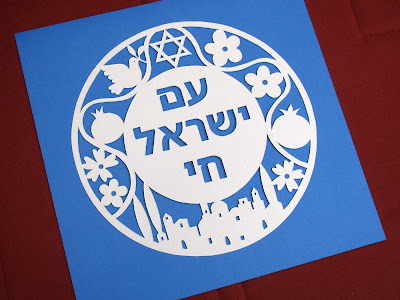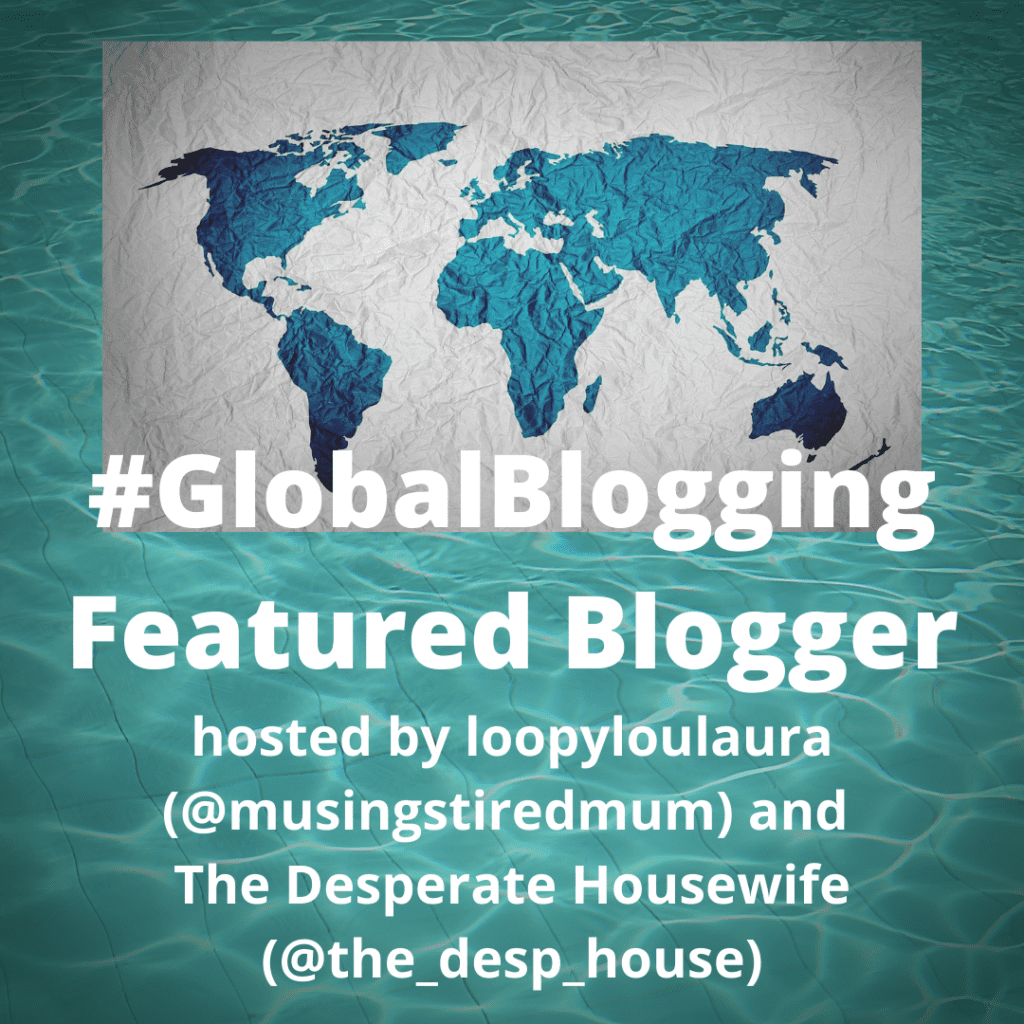Am Yisrael Chai translates in English to mean "The People of Israel
Live". It is a widely used cry of defiance, expressing the pride and solidarity
of the Jewish people, especially during times of war and heightened
antisemitism. My latest papercut, drawn and cut by hand from a single sheet of
Textura Recycled Bright White Card, has the popular phrase
in Hebrew
in the centre of the piece. It is embellished with a Star of David, a dove,
pomegranates and flowers. Buildings similar to those found in the Old City of
Jerusalem can be seen at the bottom of the piece.
The phrase
Am Yisrael Chai gained popularity during the
Student Struggle for Soviet Jewry, when rabbi and songwriter
Shlomo Carlebach, who was already popular for his melodies put to Hebrew prayers,
composed the song for the movement's 1965 solidarity rally in New York
City.
The song's lyrics are derived from a story in the
Book of Genesis
in which Joseph, having revealed himself to his brothers, asks if their
father is still alive (Hebrew: הַעוֹד אָבִי חַי). Carlebach added the
words
Am Yisrael Chai and, for the song's refrain, changed the
words "is my father still alive" to "our father still lives" (Hebrew: עוֹד
אָבִינוּ חַי).
One of the earliest references to
Am Yisrael Chai was at the Second
World Jewish Conference in 1933, summoned to fight Hitler's new Nazi regime
through economic boycott. Rabbi
Stephen Samuel Wise, the reform rabbi and Zionist leader, ended the final address by
declaring to the crowd:
"We are prepared to defend ourselves against the will of Hitler Germany to
destroy. We must defend ourselves because we are a people which lives and
wishes to live. My last word that I wish to speak to you is this - our
people lives - Am Yisrael chai!"
On 20th April 1945, five days after
the
Bergen-Belsen concentration camp
was liberated, British Army chaplain
Rabbi Leslie Hardman
led a Friday evening Shabbat service for a few hundred survivors at the
camp. Knowing the service was being recorded by the BBC radio service, he
proclaimed
Am Yisrael Chai, "The people of Israel live" at the
conclusion of the service, after singing
Hatikvah, now the national anthem of the State of Israel.




Am Yisrael Chai was sung during the
Six Day War and at
the end of the
Yom Kippur War.
In 1983
Ofra Haza, the Israeli singer, songwriter and actress, represented Israel
in the Eurovision Song Contest with the song "Chai" ("Alive"). The
words
Am Yisrael Chai were part of the chorus. In 2009,
Israeli Prime Minister
Benjamin Netanyahu
inscribed the words
Am Yisrael Chai in the guestbook of the
Wannsee Villa in
Berlin.
After an Israeli court rendered a guilty verdict for
John Demjanjuk in
1986, two songs were sung outside the courthouse:
Ani Ma'amin, "I believe", which was sung in concentration camps, and
Am Yisrael Chai.
Today Am Yisrael Chai is often used by Jewish people around
the world to express support and solidarity with Israel, especially now
during the Israel-Hamas war.
If you would like to order my
Am Yisrael Chai papercut, just
leave me a comment or use the email me button on the right hand side, below my
social media buttons. Please be sure to note which colour backing paper you
would like. The papercut costs $75 + postage and packing. It fits into a
square 23x23cm frame (or a larger frame with a mount). You will receive this
papercut UNFRAMED.













.png)



































































